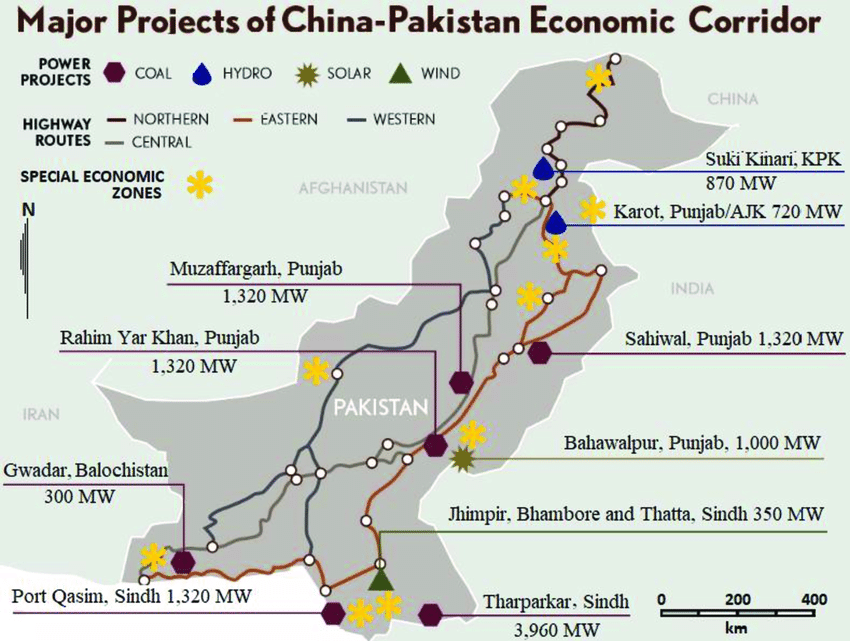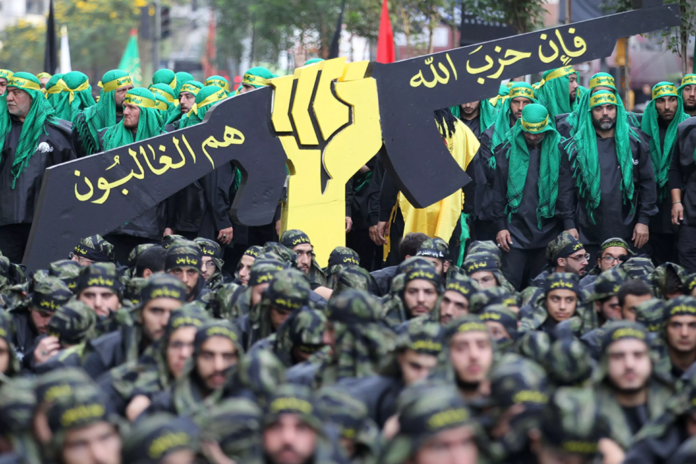Context
As Israel continues its military campaign and air bombardments on the Gaza Strip and retaliates against Palestinians for the October 7 Hamas ambush, fears are mounting the conflict was widening to include Lebanon, Iraq, Syria, and beyond. According to media reports, to date close to 26,000 Palestinians have been killed and 65,000 wounded. For its part, it is not clear if Israel is trying to contain or widen the conflict – towards its declared aim of eliminating Hamas and getting the hostages released.
The strategic puzzle is, how to eliminate Hamas without also eradicating its backer, and that of Hezbollah as well, Iran. Israel has recently targeted Hezbollah commanders in Lebanon. Not only that, Israel has also gone after Iranian military advisors in Syria.
These are seen as highly provocative actions. Meanwhile, Iran backed Houthis are making the Red Sea unusable for cargo ships. Houthis have declared they are especially targeting merchant ships belonging to Israel and the powers supporting it in the Gaza operation.
To address the deteriorating situation, the US and UK launched missile and air raids against Houthi targets in Yemen that are continuing. Iran has also seen increased attacks on the domestic front. On January 4, two bombs exploded at the memorial service for Qassem al Soleimani in Kerman in which about 80 people died. The Afghanistan based ISIS-K claimed responsibility for the attack. In December last year, 11 Iranian policemen were killed in an assault on a police station in Sistan-Balochistan province, and claimed by Jaish al-Adl.
However, the most dramatic escalation occurred when Iran launched counter strikes not only in Syria and Iraq, but also in nuclear powered neighbor Pakistan, striking Jaish-al-Adl hideouts.
These raids essentially connected the conflict that was mainly pestering the Middle East – to South Asia. Pakistan retaliated next day on January 18, by attacking Baloch nationalist groups operating from Iran and was launching attacks against its security forces.
No one had expected the tentacles of Gaza conflict to reach as far as Pakistan, and entangle two proxy-war powers, one belonging to South Asia and the other, Middle East. Several angles have thus emerged, why did Iran strike Jaish al-Adl in Pakistan at a time when it has so much to focus on in the Middle East.
While the ties have not always been amicable, often because of the cross-border activities of the non-state actors, neither Iran, nor Pakistan, consider each other an enemy. The puzzle becomes even more complex since the attacks at the memorial for the former intelligence chief, Qassem Soleimani, were claimed by ISIS-K based in Afghanistan. It is also noteworthy, the Iranian strikes in Pakistan came soon after the visit of Indian foreign minister, S. Jaishankar to Iran.
Analysis
ISIS-K, Taliban, And Jaish al-Adl
There are some key plausible reasons why Iran may have decided to strike Jaish al-Adl in Pakistan.
For some time, the risk has been growing regarding the level of collaboration that exists between Tehreek-e-Taliban Pakistan (TTP) and Balouch separatist groups, as they both have been targeting the security forces of Pakistan. Pakistan has been consistently pressurizing Afghan Taliban to act against TTP that has taken refuge in Afghanistan.
While the Afghan Taliban have acted against ISIS-K, as demanded by the US too, they have not exerted such pressure against TTP. This has strained the relations between Afghanistan and Pakistan. The apprehension on the Afghan Taliban side is: if they operate against TTP, it is likely to drift towards ISIS-K.
At the same time, there is also the possibility that Jaish al-Adl is receiving support from ISIS-K for attacks against Iran. ISIS-K has been expanding its reach and is responsible for a number of deadly attacks in Pakistan, and some in Iran as well.
This is especially true when ISIS-K claimed responsibility for the bombings at the Qassem Soleimani’s commemoration. Iran must have deliberated on targeting ISIS-K in Afghanistan or Jaish al-Adl in Pakistan.
In the past, Jaish al-Adl, and it earlier version, Jundullah, was allegedly receiving support from US, Israel, and other Gulf nations. In the aftermath of the bombings at the Soleimani’s memorial, Iran gave less credit to ISIS-K claim and more to the involvement of US and Israel. In a tweet on X, Iranian president’s political deputy, Mohammad Jamshidi, wrote:
“Make no mistake. The responsibility for this crime lies with the US and Zionist regimes (Israel) and terrorism is just a tool.”
By striking Jaish al-Adl, the impression emerges that the organization is once again enjoying some level of outside support. It could also be a signal to Pakistan to not extend any assistance towards targeting Iran.

The Role of India
Although a brief escalation, this recent episode has underscored the fundamental challenges Iran and Pakistan face in countering terrorism, with mutual distrust playing a significant role.
Both nations have long accused each other of providing safe havens to their respective enemies. Pakistan consistently maintains that India’s intelligence agency, Research and Analysis Wing (RAW), is operating from Iranian soil, orchestrates attacks in Pakistan’s Balochistan region – and supports the anti-Pakistan Baloch separatist movement. Conversely, Iran blames Pakistan for its inaction against anti-Iran terrorist sanctuaries in the Balochistan bordering region and for not taking decisive action against infiltrators into its territory through human trafficking and smuggling of weapons.
In 2016 Pakistan had arrested what it claims to be an Indian spy, posing as an Iranian businessman. There are different versions of how and where Kulbhushan Yadav was captured. Indian media had claimed, Kulbhushan was abducted by Jaish al-Adl and handed over to Pakistan’s intelligence organizations. However, in a confession statement made under Pakistan’s custody, Kulbushan stated his main task was to sabotage CPEC (China, Pakistan Economic Corridor) and create unrest in Karachi and Balochistan. For this mission, he was in touch with many leaders of Baloch separatist groups. Thus, India has already been a player when it comes to regional proxy games involving Afghanistan, Iran, and Pakistan.
Recently, for its support of Israel, Indian cargo ships have come under attack in the Red Sea, threatening its energy supplies. This has pulled India into the conflict as well and has caused it to send three guided missile destroyer ships to the Arabian Sea.
Conclusion
As the Gaza conflict unfolds, the focus has mainly been on the Shiite and Sunni non-state actors in the Middle East. The Iranian strike on Jaish al-Adl reflects the complexity of the non-state actor landscape that exist in South Asia, particularly as it relates to the politics of Pakistan, Afghanistan, India and Iran.
However, the Iranian raids and Pakistan’s response have connected the geopolitics of Middle East and South Asia – in a way that it did not in the past. This obviously will have far reaching consequences. Sunni religious leaders have been voicing support for Hamas in Pakistan, and the group leadership has also appeared virtually in different rallies organized in support of Gaza.
Speaking at a conference in Islamabad in December via video link, Ismail Haniyah stated: “If Israel faced resistance from Pakistan, the perpetration of cruelty could cease.”
The leader of Jamiat Ulama-e-Islam (JUI-F) Mowlana Fazl-ur-Rehman even travelled to Qatar last November to meet with Hamas leader Ismail Haniyah and Khaled Mashal. He was quoted as commenting: “Palestinians are not only fighting for their own land but on behalf of the Muslim Ummah, are fulfilling their duty by fighting for the freedom of the first Qibla.”
The crackdown against Muslim Brotherhood under Sisi in Egypt has meant that Sunni Hamas has had to rely on Shiite Hezbollah and Iran for support, especially when Hamas and Salafi jihadist, like ISIS, hate each other. In the aftermath of the October 7 attack, Israel has attempted to showcase Hamas to be the same as ISIS – but this carries dangerous consequences. Moreover, since Abraham Accords were reached, Palestinians also appear to be losing hope with the Gulf Arabs. In this context, Hamas reaching out to religious groups in Pakistan is significant. How will Iran, India, Israel, and other western powers interpret such outreach by Hamas is not clear.
The longer the Gaza crisis lasts the greater will be the blow back – while also allowing for the potential reconfiguring of the Israeli-Palestinian conflict.





